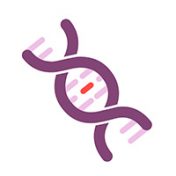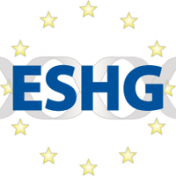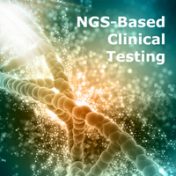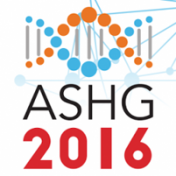VarSeq Stable 2.1.0 is Ready for Clinical Validation, See it in Action Next Week This week we are happy to see the general availability of VarSeq 2.1, the culmination of the last five months of work since we launched VSClinical. We have been blown away by the adoption of VSClinical, outpacing any previous product launch in terms of the pace… Read more »
Celebrating our 20th Anniversary on September 15th, we took some time to reflect on the last two decades in this industry. Two decades of learning, adaption, and growth on the business side as well as the personal side. Employees began their careers with us, made new friends and started their own families. These past 20 years are full of stories… Read more »
In the last installment of this series, I covered the basics of variant interpretation and how it fits into the genomic testing process. Now we can cover in more detail how VSClinical works, what algorithms and annotation sources power the recommendations and how the ACMG criteria are organized into useful categories. VSClinical is built to make the process of evaluating… Read more »
We just came back from ACMG in North Carolina where we launched our new product VSClinical. The reception has been terrific and our booth has never been as frequented. We had record level visitors and demo presentations. So, what is all that buzz about this new product? Why do people care so much and how does it help a clinical… Read more »
The Golden Helix SNP & Variation Suite (SVS) platform is a powerful and versatile set of tools and algorithms for performing genomic research. That research spans from data originating on genotype micro-arrays to next-generation sequencing. While the majority of SVS users start with genotype data on their samples, any genomic information across a cohort can be used in our various… Read more »
Next-Gen Sequencing promised to be the ultimate paradigm when it comes to genetic research and clinical testing since it contains the complete genetic information. When it comes to the current reality in testing labs, there are still a number of additional testing paradigms used in an analysis, specifically, copy number variations. Among these, labs still widely use Chromosomal Microarrays and… Read more »
An Example of an Integrated Clinical Workflow for CNVs and SNVs In this blog series, I discuss the architecture of a state of the art secondary pipeline that is able to detect single nucleotide variations (SNVs) and copy number variations (CNVs) in one test leveraging next-gen sequencing. In Part I, we reviewed genetic variation in humans and looked at the key… Read more »
Examples of CNV Calling What do CNV calls actually look like? What are some of the key metrics to determine an event? Part IV of the Secondary Analysis 2.0 blog series will answer these questions by walking through some examples of how our CNV caller, VS-CNV, identifies CNVs. Golden Helix integrates multiple metrics to determine if a CNV event is… Read more »
Detection of CNVs in NGS Data Our Secondary Analysis 2.0 blog series continues with Part III: Detection of CNVs in NGS Data. We will give you an overview of some design principles of a CNV analytics framework for next-gen sequencing data. There are a number of different approaches to CNV detection. The published algorithms share common strategies to solve the… Read more »
In this blog series, I will discuss the architecture of a state of the art secondary pipeline that is able to detect single nucleotide variations (SNV) and copy number variations (CNV) in one test leveraging next-gen sequencing. In Part I, we reviewed genetic variation in humans in general and looked at the key components of a systems architecture supporting this… Read more »
Human genetic variation makes us unique. On average, humans are to 99.9% similar to each other. Understanding in detail what the nature of the difference in our genetic make-up is all about allows us to assess health risks, and eventually enables Precision Medicine as we determine treatment choices. Furthermore, it enables scientists to better understand ancient human migrations. It gives… Read more »
We are back from another exciting trip to ESHG, hosted in Copenhagen, Denmark last week. We were delighted by the number of researchers and clinicians we were able to connect with. Needless to say, the weather was outstanding in Copenhagen, which made our stay even more pleasant! Even though this was a European event, it was great to be able to speak with… Read more »
Last week was fast and furious for those of us who made it to Phoenix attending ACMG 2017. The event was exceptionally well attended, with great talks and sessions. Here are some of the highlights that are worth mentioning from our perspective. Numerous talks referenced how important the updated Exac/gnomAD database is for clinical NGS analysis. The new dataset includes… Read more »
In the past couple of weeks, the topic of the Filter and Quality fields in the popular ExAC population catalog has come up a number of times. It turns out that unlike the 1000 Genomes project, which decided to very heavily filter their variant list to only contain variants they consider high quality, ExAC chose to include more dubious variants… Read more »
This generation of scientists, clinicians and bioinformaticians have already elevated the standards for diagnosis, prediction and care, ultimately improving patient outcome for millions of people by leveraging genomic information. This trend is only going to continue. Next-gen sequencing has made its way into the clinic. Golden Helix supports the adoption of Precision Medicine by building products, such as our VarSeq… Read more »
With a properly defined wet-lab and bioinformatics process, we are able to zero in on clinically relevant variants. How does a lab report on the outcome of their analysis? We find that most laboratories conduct their variant classification based on the guidelines formulated by the American College of Medical Genetics (ACMG) for inherited diseases. The ACMG guidelines for variant classification… Read more »
The year 2017 is starting fast and furious for us here at Golden Helix. We just announced a new imputation capability for our SVS product. At the same time, members of our team are on the way to PAG in San Diego to network with our clients in the Plant and Animal community. We have a terrific plan in place… Read more »
It is time to kick off our fourth annual abstract challenge! Our mission at Golden Helix is to enable Precision Medicine. We accomplish this by creating powerful software that enables both researchers and clinicians to complete complex analysis. This competition allows us to enable discovery by awarding software to those making an impact in the field. The competition has been… Read more »
ASHG 2016 is in our rear mirror. Again, it was bigger and better than the previous year. The conference hosted over 9,000 visitors from 66 countries. This gave the event a level of vibrancy that was evenly matched by the wonderful ambiance of the city of Vancouver. Nestled in between the two conference centers was a little pier offering spectacular… Read more »
Today we reached an important milestone. We have registered over 10,000 confirmed eBook downloads. Of course we are thrilled! Over the years, we aimed to contribute relevant content to the community. For some time, we have blogged and conducted webinars on the latest technology, methods and best practices. Our eBooks were the latest addition to this mix. We received a… Read more »













